“Ain’t No Sunshine”: Subpoenas, Cocktails, Crosby, and Poetry
Reading Time: 6 minutes.
Stay-at-home continues in the coronavirus pandemic, but much to cover here — subpoenas and search warrants, cocktails and Bing Crosby, a Turkish poet and a Southern one, eighteenth-century gin addiction, and Bill Withers and John Prine.
Law
Basic concepts are, well, basic. Here is a 5-minute video about the differences between subpoenas and search warrants:
Cocktails
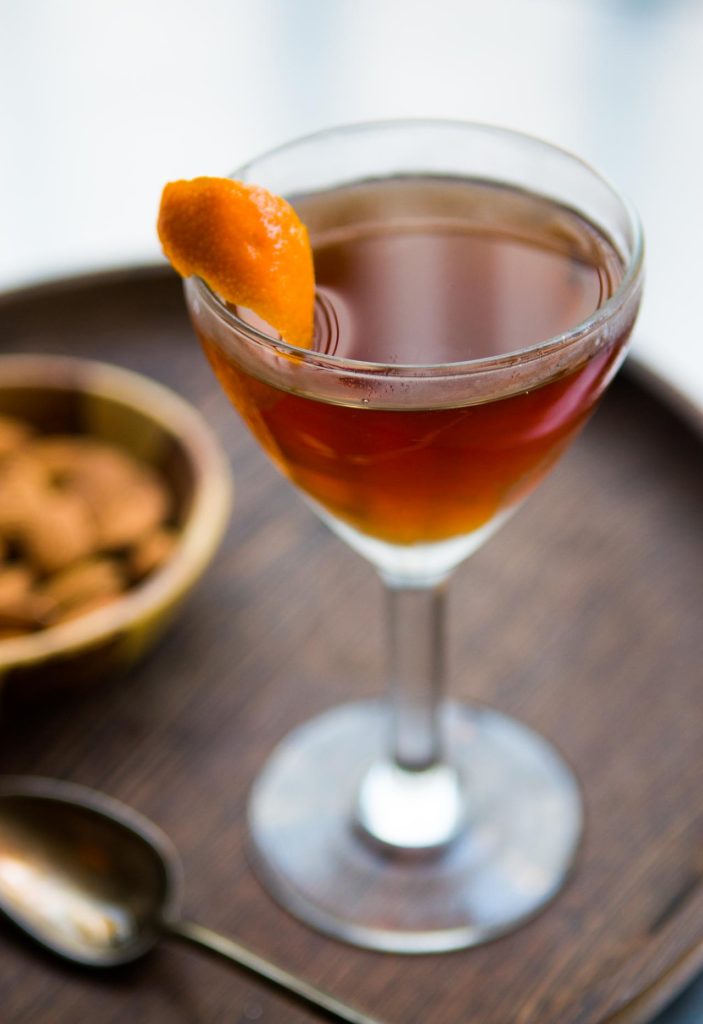
A few more cocktails. First, the Hanky Panky (from David Lebovitz’s excellent new cocktail book Drinking French):
“I like to add a dash of orange bitters; the slight fruitiness tames the sharper edges of the drink. The recipe comes from Ada Coleman, who was the head bartender at The Savoy Hotel in London in the early 1900s. According to The Savoy Cocktail Book, the drink was originally shaken, but most people prefer to stir, rather than shake.
1 1/2 ounces gin
1 1/2 ounces sweet vermouth
2 dashes Fernet Branca
1 dash orange bitters (optional)
1 orange twist
Add gin, vermouth, Fernet Branca, and orange bitters (if using) to a cocktail mixing glass. Fill 2/3rds full with ice and stir briskly until very cold, about 15 seconds. Strain the mixture into a cocktail glass and garnish with an orange twist.”
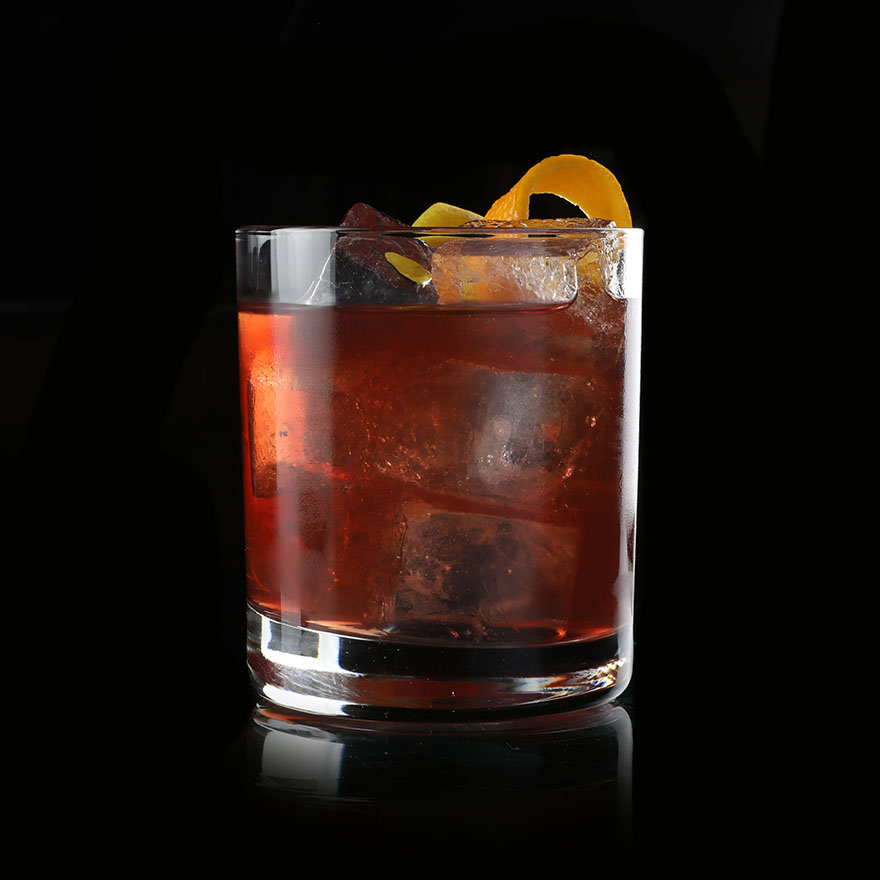
The “Home On The Range” (from Lennell’s Beverage Boutique):
“1.5 oz. Dubonnet Red
1.5 oz. rye
1/6 oz. dry Curacao
Dash Angostura bitters
Stir over ice in a mixing glass until cold [at least 30 seconds] and strain into into a chilled cocktail glass or over ice in an old-fashioned glass.”
While you consume your “Home On The Range,” you can listen to Bing Crosby’s hit:
And finally, from Robert Simonson’s The Martini Cocktail, the “Grill House Martini” (from the bar at The Four Seasons in New York). As Simonson says:
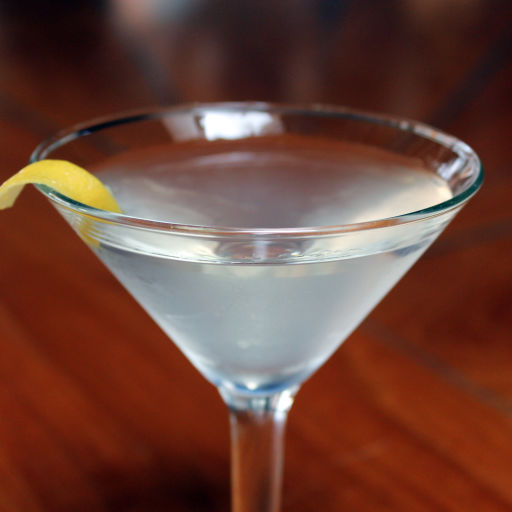
“The drink is wonderful, a taste of blue fire, dry without being silly about it and cold as the heart of a Wall Street banker.”
1.5 oz. Plymouth gin
1.5 oz. Tanqueray gin
.25 oz. Noilly dry vermouth
.25 oz. Dolin blanc vermouth
.25 oz. spring water
Cerignola olive or lemon twist
Combine and freeze the liquid ingredients for 24 hours in advance. Serve in a chilled crystal Martini glass. Garnish with a skewered Cerignola olive or express a lemon twist over the drink and drop it into the glass.
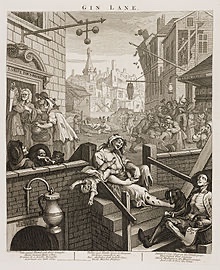
Gin was the crack cocaine of eighteenth-century England. For an engaging history of gin in Britannia, listen on Spotify to the BBC’s “In Our Time” podcast on The Gin Craze:
“Melvyn Bragg and guests discuss the craze for gin in Britain in the mid-18th Century and the attempts to control it. With the arrival of William of Orange, it became an act of loyalty to drink Protestant, Dutch gin rather than Catholic brandy, and changes in tariffs made everyday beer less affordable. Within a short time, production increased and large sections of the population that had rarely or never drunk spirits before were consuming two pints of gin a week. As Hogarth indicated in his print Beer Street and Gin Lane (1751) in support of the Gin Act, the damage was severe, and addiction to gin was blamed for much of the crime in cities such as London. With Angela McShane Research Fellow in History at the Victoria and Albert Museum and University of Sheffield Judith Hawley Professor of 18th Century literature at Royal Holloway, University of London Emma Major Senior Lecturer in English at the University of York Producer: Simon Tillotson First broadcast 15 December 2016.”
Poetry
Poetry has its moments. Here are two poems.

First, going to prison can be a soul-destroying event for anyone but, in some ways, especially so for white-collar offenders. Here, courtesy of Poets.org is “Some Advice to Those Who Will Serve Time in Prison” by Nazim Hikmet (1902-1963):
If instead of being hanged by the neck
you’re thrown inside
for not giving up hope
in the world, your country, and people,
if you do ten or fifteen years
apart from the time you have left,
you won’t say,
“Better I had swung from the end of a rope
like a flag”—
you’ll put your foot down and live.
It may not be a pleasure exactly,
but it’s your solemn duty
to live one more day
to spite the enemy.
Part of you may live alone inside,
like a stone at the bottom of a well.
But the other part
must be so caught up
in the flurry of the world
that you shiver there inside
when outside, at forty days’ distance, a leaf moves.
To wait for letters inside,
to sing sad songs,
or to lie awake all night staring at the ceiling
is sweet but dangerous.
Look at your face from shave to shave,
forget your age,
watch out for lice
and for spring nights,
and always remember
to eat every last piece of bread—
also, don’t forget to laugh heartily.
And who knows,
the woman you love may stop loving you.
Don’t say it’s no big thing:
it’s like the snapping of a green branch
to the man inside.
To think of roses and gardens inside is bad,
to think of seas and mountains is good.
Read and write without rest,
and I also advise weaving
and making mirrors.
I mean, it’s not that you can’t pass
ten or fifteen years inside
and more—
you can,
as long as the jewel
on the left side of your chest doesn’t lose its luster!
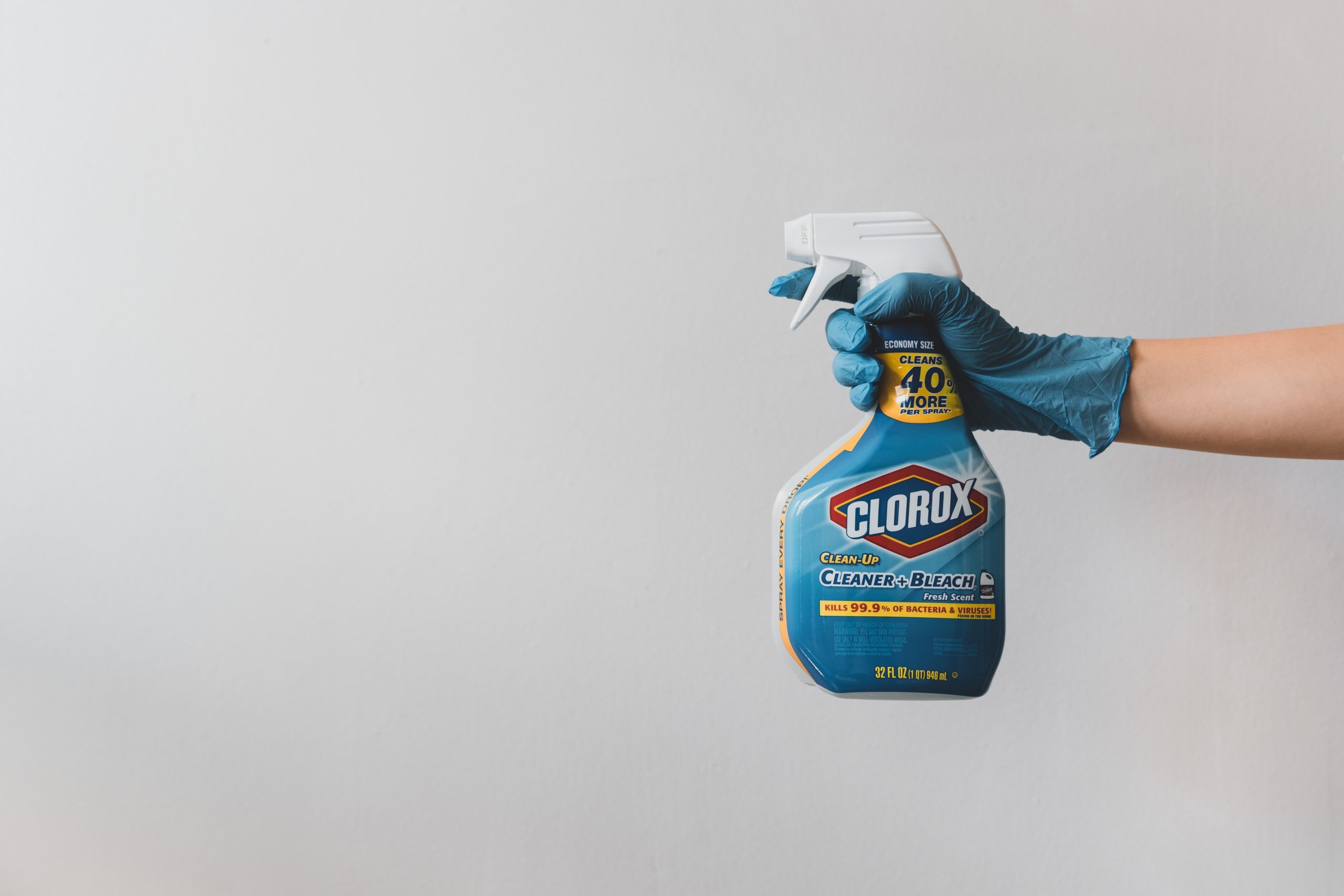
And, in this age of social distancing and personal hygiene, “Cleanliness is next to godliness,” a poem by Nin Andrews (from Southern Comfort (2010)):
Grandma always said. Most days she met me at the screen door with a feather duster or our new Electrolux vacuum, the hose sucking my blouse. She said she liked her girls clean. She said I was coated with dog hairs, horse hairs, and God only knows what all else. Fixing me like a flower bouquet, tucking in my blouse, fluffing my bangs and adjusting my barrettes, she'd stare me down just to let me know I was allowed in only if she said so.
Music
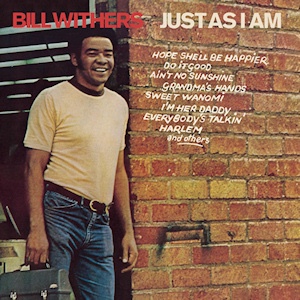
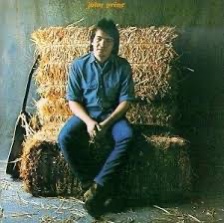
Bill Withers and John Prine died recently.
“Ain’t No Sunshine” was released in the summer of 1971, when I was ten years old. It was one of the first R&B/soul songs I recall hearing everywhere — car radio, record store — just everywhere. Although “Lean On Me” entered the cultural context more deeply through repetition in film and at moments of crisis both pubic and private, “Ain’t No Sunshine” marked an epoch for me and many others. Withers was a wonderful, modest artist.
The other side of the early 1970s for me was John Prine (October 10, 1946 – April 7, 2020). “Illegal Smile,” “Angel from Montgomery,” and “Sam Stone” brought home to me what would likely now be called authenticity but which was wholly an artist creating art that reflected the daily human condition.